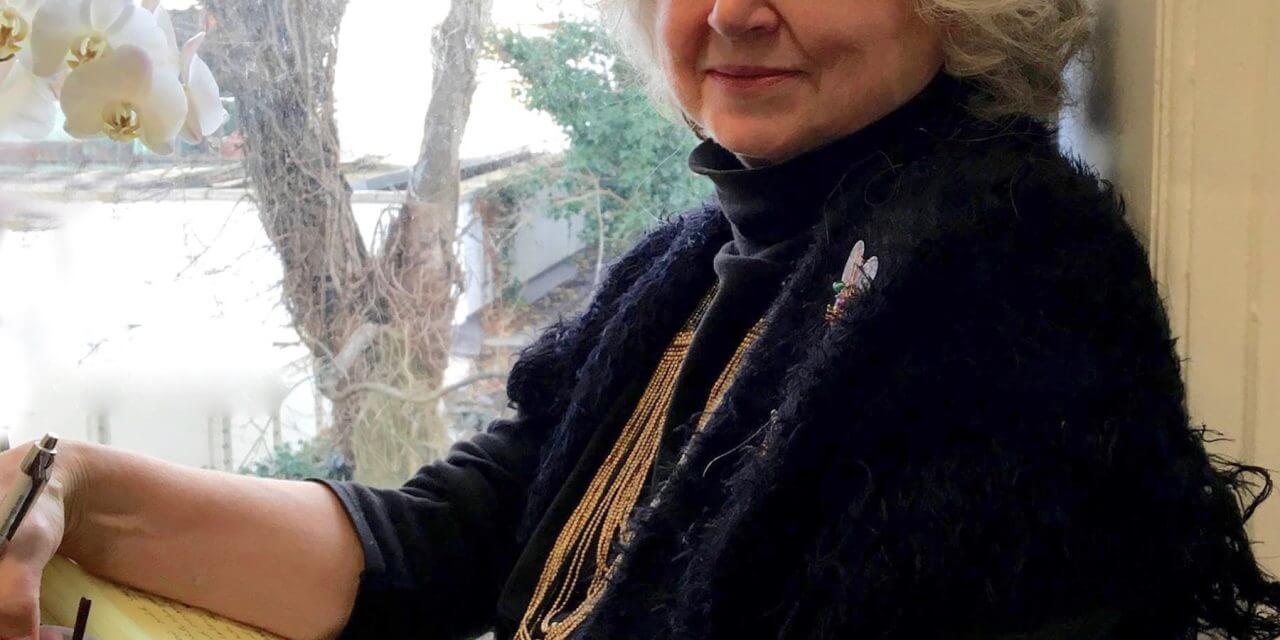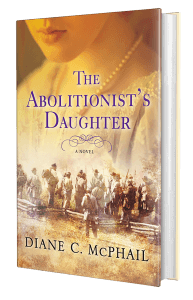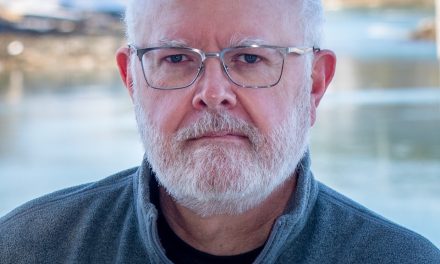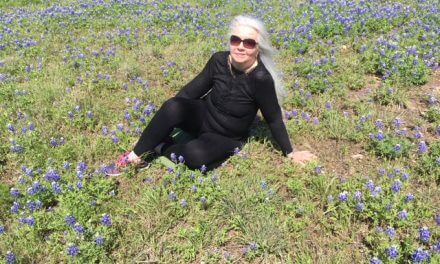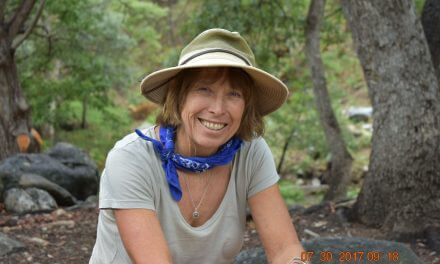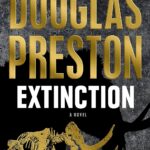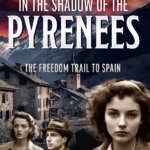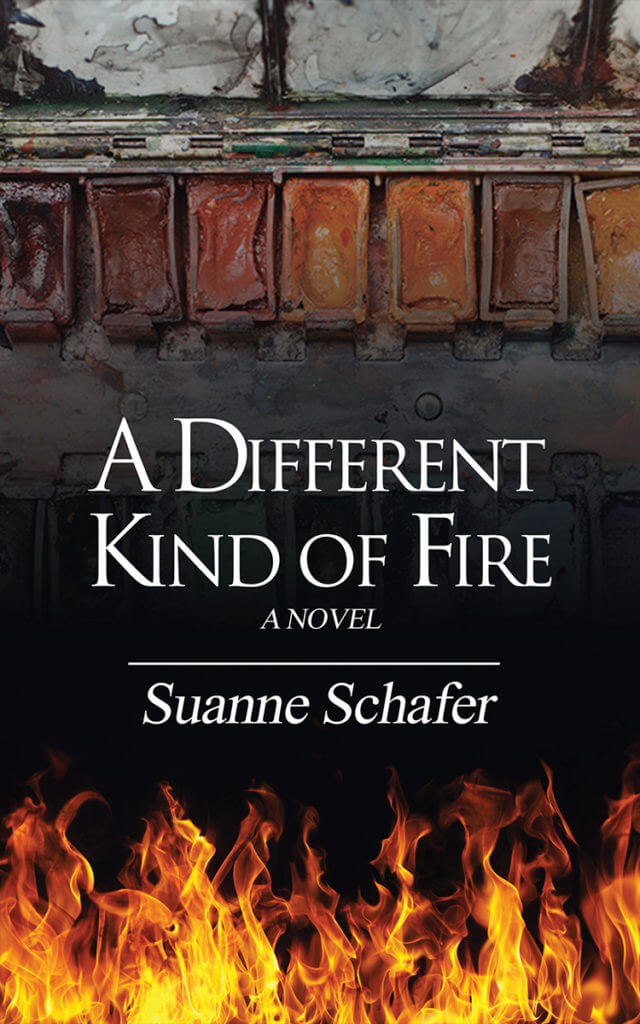
SS: Diane, when I read other authors’ biographies, mine seems dull by comparison. How do you feel about your life story? Have you ever been tempted to jazz yours up?
DM: I have sometimes, actually more often than I would like to admit, wanted my life to jazz itself up! I have somehow accumulated something of an alphabet behind my name, which may look a bit impressive to others, but which does not in any way feel impressive to me. My life really has been such a serial of shifting, yet connected involvement that it looks as if, perhaps truthfully, that I never figured out what I wanted to be when I grew up.
SS: Do you have a day job? If so, is it a distraction, or does it add another element to your writing?
DM: Not sure if I would call my other work a day job, but I have been first and foremost an artist, primarily a painter. I have a studio larger than my house and work there regularly. I am also a retreat leader. Both of those I find to correlate with my writing because all of them are creative endeavors. All are fed by the philosophy of Madeleine L’Engle, my first writing teacher, who believed that the work knows more than we do, comes to us from somewhere larger than ourselves, and like an annunciation, asks us to give it birth. Our job then is to listen and follow the work where it knows it needs to go.
SS: Could you say something about your relationship to your fictional characters? How autobiographical do you think your fiction is?
DM: People who know me well tell me they see me in the writing. Though the autobiographical is never my intent, I am aware that, in spite of extensive research, the only place any of us have to write or create from is ourselves.
SS: Do you hide any secrets in your books that only a few people will find?
DM: Not intentionally. However, since my writing is necessarily drawn from my own experience, people who know me well have seen clear and strong correlations to people who have been important in my experience one way or another. I had a reader ask me about one such character at a signing event. Suddenly it was very clear to me who in my life had influenced that character without my even recognizing it.
SS: Do you think that self-revelation is part of the writing process?
DM: As may be indicated in the previous answers, I don’t believe any of us can participate in the creative process—whatever form it may take—without self-revelation at some level. Our writing comes through who we are.
SS: At what point did you come up with the title? Did your publisher change it?
DM: This book was twelve years in becoming what it now is. During most of that time, I used a working title to which I was deeply attached as an underlying theme, but which I knew from the beginning I could not use. It involved a line from one of the slaves about Eden. There was entirely too much room and danger of that word being misconstrued as applying to the ante-bellum South, when in fact, the book is entirely anti-slavery. Still bound to that character’s lines emotionally, I used a title that indicated a “broken world.” It fit, but did not get great responses to queries. One day I suddenly thought The Abolutionist’s Daughter. The title indicated genre, period, two characters, and a stance on social justice. Immediately, I began to receive lots of response to queries with no other changes. I learned just how important a title can be.
SS: Khaled Hosseini (The Kite Runner) feels he discovers a story rather than creates it. Are you a plotter? Or do let the novel develop organically?
DM: You have referenced one of my favorite writers and favorite books. I am so glad to know that he shares my philosophy about the creative process. I am struggling with a work-in-progress now for which I need to submit an outline. I have to say, though I know well how to outline, I find this far more difficult than actual writing. I’m having a bit of success by allowing myself to let the outline reveal itself to me, as opposed to thinking it up.
SS: How do you make your readers regret they’re coming to the end?
DM: A surprising number of readers have expressed to me that it made them so sad for the book to end, although they found the ending satisfying. I think the key is in the characters. Since I am also a therapist, I have both a strong commitment and a strong background for making characters real, with all the strength and foibles of human nature. None of us are stereotypes. Readers will miss characters they feel they truly know.
SS: Lisa Cron (Wired for Story) says, “We think in story. It’s hardwired in our brain. It’s how we make strategic sense of the otherwise overwhelming world around us.” In what way are you trying to make sense of the world?
DM: What a challenging question! I will answer with what I believe to be the central underlying theme of my book: What do you do when faced with a system or culture or legalities that make it impossible for you to do the things you know to be right and good? How much are you willing to risk to do it?
SS: Chimamanda Ngozi Adichie wrote of Half of a Yellow Sun: “If fiction is indeed the soul of history, then I was equally committed to the fiction and the history, equally keen to be true to the spirit of the time as well as my artistic vision of it.” Does that resonate with you? (Or, if not, how would you describe your relationship with history and fiction?)
DM: Thank you for this question and for this quote. This resonates deeply. Thorough research makes the history authentic, if not factual. That foundation allows the fiction of narrative and character to emerge and develop in equal authenticity.
SS: How has writing about history changed your perspective about history?
DM: I was never a great history student—all those facts and names and dates. But give me a good story, historically set, and I’m thoroughly immersed. I have learned little-known history about slavery and anti-slavery that has enlightened my understanding of our own time and set before me questions and challenges not just in writing, but in how I choose to live.
********************
On a Mississippi morning in 1859, Emily Matthews begs her father to save a slave, Nathan, about to be auctioned away from his family. Judge Matthews is an abolitionist who runs an illegal school for his slaves, hoping to eventually set them free. One, a woman named Ginny, has become Emily’s companion and often her conscience—and understands all too well the hazards an educated slave must face. Yet even Ginny could not predict the tangled, tragic string of events set in motion as Nathan’s family arrives at the Matthews farm.
A young doctor, Charles Slate, tends to injured Nathan and begins to court Emily, finally persuading her to become his wife. But their union is disrupted by a fatal clash and a lie that will tear two families apart. As Civil War erupts, Emily, Ginny, and Emily’s stoic mother-in-law, Adeline, each face devastating losses. Emily—sheltered all her life—is especially unprepared for the hardships to come. Struggling to survive in this raw, shifting new world, Emily will discover untapped inner strength, an unlikely love, and the courage to confront deep, painful truths.
In the tradition of Cold Mountain, The Abolitionist’s Daughter eschews stereotypes of the Civil War South, instead weaving an intricate and unforgettable story of survival, loyalty, hope, and redemption.
“Diane McPhail excavates a nearly forgotten corner of American history and brings it to full, beating life. This is a fascinating and heartfelt look at the kinds of stories that don’t always make it into the history books.” — Louis Bayard, author of Courting Mr. Lincoln
“A contender, a deeply felt, thoroughly researched story… As good as it deserves to be.”
— Jacquelyn Mitchard, New York Times bestselling author
“A tender, sparkling debut that bears gentle witness to the abominations of slavery and oppression while heralding the grace, power and necessity of righting wrongs and choosing love.”
– Ethel Rohan, author of The Weight of Him
********************
An excerpt from The Abolutionist’s Daughter:
Emily came upon Ginny reading and felt a surge of gratitude to her father for including Ginny in their household tutoring, for setting up a school for all his slaves in spite of their education being illegal. Emily tilted the corner of the book to see the title: Jane Eyre.
“What do you think of it, Ginny?”
“I think I wished I knew a woman that strong.” Ginny laid the book aside, picked up the feather duster. “I think I wished I was one.”
“Yes, I wish the same.”
Emily studied Ginny’s back for a moment. “Ginny,” she said, “you studied with me, with my tutor. You spent most of your life in this house. Why do you not speak correctly?”
Ginny lowered the duster and turned. “Yes, Miss Emily, I have studied and I have learned almost everything that you have, though I began somewhat later than you. Was that correct enough?”
“Yes, of course, Ginny. I know you can speak as well as I do. Yet you persist in speaking the slave-dialect.”
“And do you know what speaking as well as I know how to, speaking better than lots of white folks around here, would make me? An ‘uppity nigger’, that’s what. Do you know what happens to ‘uppity niggers’ around here, especially women? Rape? Lashings? Things you couldn’t protect me from in spite of owning me.”
“I’m sorry, Ginny.” Emily stumbled on her words. “What I mean is your education makes you special. You shouldn’t waste it.”
Ginny pulled the duster through her other hand. “No, Miss Emily, I ain’t special. I tell you who special. Them black folk breaking they backs out there in the sun trying to make a life for themselves out of leftovers, they the folk who special.” Ginny straightened to her full height and laid the duster beside the closed book. “Education does not make a person special,” she said, her face clear and open. “Courage and fortitude and perseverance, self-denial and any number of other admirable qualities, like Jane Eyre, like your Papa going up against slavery—those things make a person special. And as to dialect, I don’t know what that is. I do know this. What I am speaking so correctly now is ‘white’ dialect. It sets me apart from my own and I choose not to be set apart. What we speak is a language, black language, slave language, one forged out of the most impossible conditions: seized from all parts of Africa, speaking hundreds of different languages, unable to understand even one another, chained up by slavers speaking multiple other languages. And out of that, Miss Emily, these tortured people made a way to communicate with one another and with their enslavers. That is history you have not studied in your books. And those are my people whose language I will not dishonor by failing to speak it. You asked me plain out, Miss Emily, and I answer you plain out. And I ain’t saying nothing about that subject again.”
********************
The Abolutionist’s Daughter is available through:
